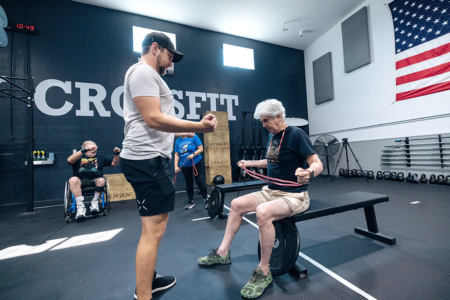Behavioral health leaders reflect on Kansas’ statewide rollout of new mental health care model
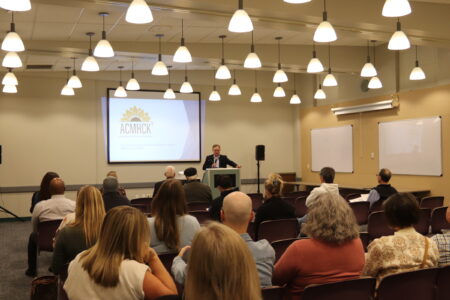
photo by: Josie Heimsoth/Journal-World
Community members gathered at a town hall with behavioral health leaders discussing emerging issues in mental health service delivery in Kansas on Monday, Nov. 3, 2025.
As of this year, all of Kansas’ community mental health centers are operating under a model that gives them more reimbursement for their services and helps ensure people can receive care regardless of their ability to pay, and leaders spoke more about it at a town hall meeting in Lawrence on Monday.
The model is called a Certified Community Behavioral Health Clinic, or CCBHC, and it focuses on providing comprehensive mental health and substance use treatment and expanding access for underserved communities. Kansas has been a sort of pioneer in this model, because it was the first state to pass legislation requiring the model’s implementation. Gov. Laura Kelly signed that legislation in 2021, and as of a few months ago, all 25 existing community mental health centers in Kansas had the CCBHC model.
On Monday, community members in Douglas County gathered at the Community Health Facility, 200 Maine St., for a town hall hosted by Bert Nash Community Mental Health Center — which received its certification in the new model in 2023 — and the Association of Community Mental Health Centers in Kansas. This was the 19th in a series of town halls the association has held with community members throughout the state to reflect on the changes since adopting the CCBHC model, as well as other challenges in ensuring access to mental health treatment.
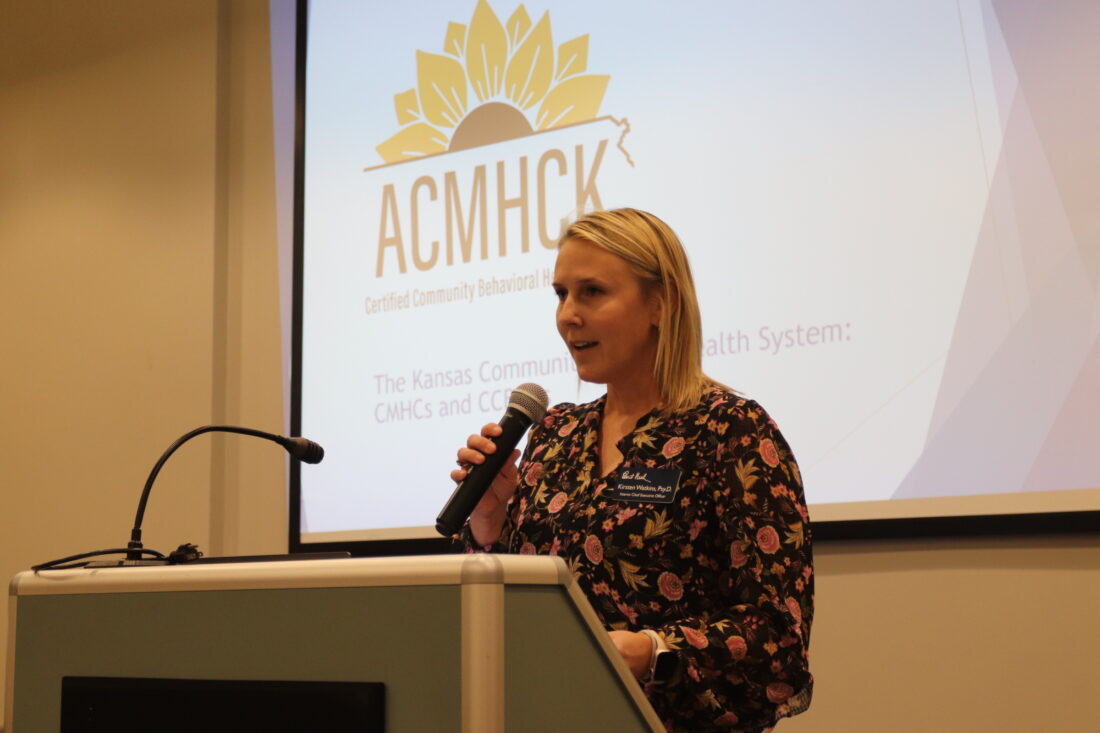
photo by: Josie Heimsoth/Journal-World
Interim CEO of Bert Nash Kirsten Watkins speaks at a town hall on Monday, Nov. 3, 2025.
“Since we have adopted the CCBHC model of care, we streamlined our processes, we hired new staff, we prioritized quick access to all of our programs and services and now we provide an average of 160 intakes per month across the lifespan, across all ages,” Interim CEO of Bert Nash Kirsten Watkins said. “We’re able to offer same day intakes for high-risk clients, which is necessary and important, and on average, clients are waiting three days from reaching out to us to having that first appointment with a licensed mental health provider.”
Michelle Ponce, associate director of the Association of Community Mental Health Centers of Kansas, said that before the CCBHC model was implemented, mental health providers were reimbursed at a set cost for services through Medicaid. However, those reimbursement rates had not been updated for many years to reflect the true cost of providing care.
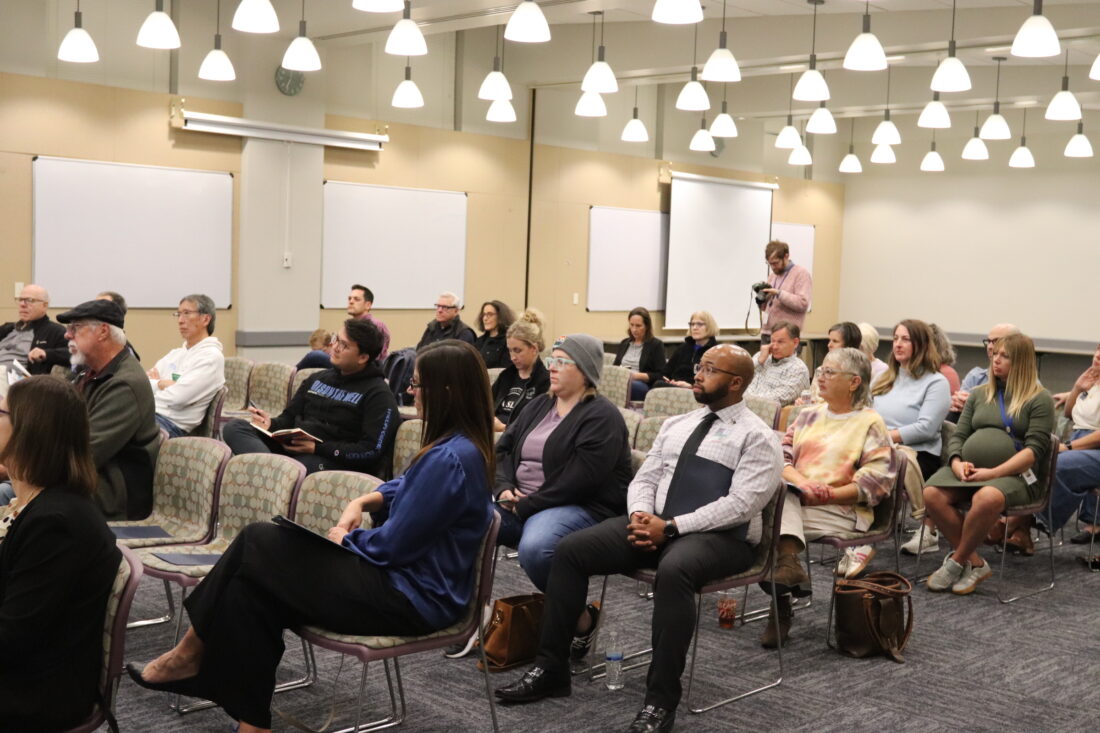
photo by: Josie Heimsoth/Journal-World
Community members gathered at a town hall with behavioral health leaders discussing emerging issues in mental health service delivery in Kansas on Monday, Nov. 3, 2025.
“Under a CCBHC system, they get paid through what is referred to as a prospective payment system, which is a complicated way of saying that they get reimbursed for the true cost of providing those services, and at the end of the day, the true cost of providing those services is much higher than that traditional service fee for service payment,” Ponce said.
Ponce said there are specific requirements a mental health center has to meet to qualify as a CCBHC. A CCBHC must provide nine core services – 24/7 crisis intervention, screenings and counseling for mental health and substance use disorders, outpatient services, psychiatric rehabilitation, peer and family support, targeted case management, medication-assisted treatment, primary physical health care integration and veteran-specific services.
Clinics must have mobile crisis response that is connected to the national suicide prevention and mental health crisis hotline, as well as ensure timely access to care regardless of ability to pay, location, or insurance status. They must also collect and report data on quality measures, outcomes and patient satisfaction to demonstrate accountability and continuous improvement, among other things.
While Kansas was the first state in the country to pass legislation on the CCBHC model, as of late 2024, the model has been implemented in 46 states, Washington, D.C., and Puerto Rico, though the extent of implementation varies by state.
Ponce said since implementing the model from 2021 to 2024, the number of adult case managers working in the Kansas Community Mental Health System increased by 43%, along with a 60% increase in the number of child case managers and a 75% increase in licensed professional counselors.
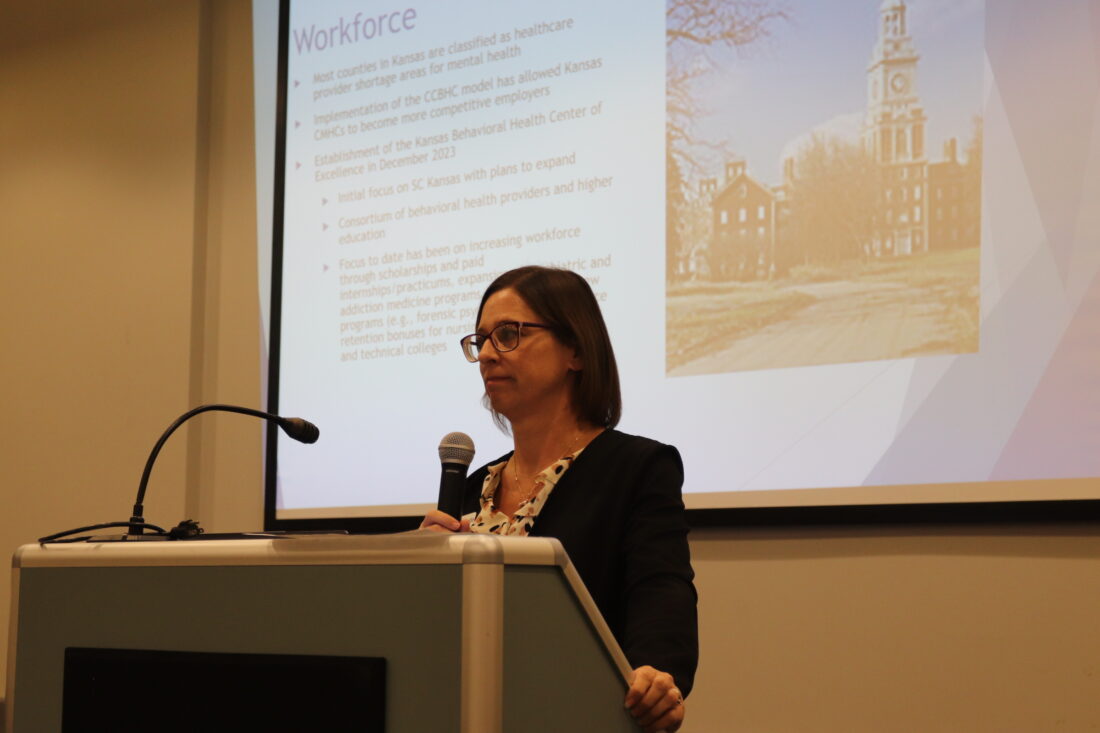
photo by: Josie Heimsoth/Journal-World
Michelle Ponce, associate director of the Association for Community Mental Health Centers, is pictured on Monday, Nov. 3, 2025.
“(But) at the end of the day, it’s still not quite enough,” Ponce said. “It’s not the money, it’s the people we simply need, more people in the workforce and more people going into health care and behavioral health.”
Most counties in Kansas have a shortage of providers for mental health, Ponce said. In addition, it’s been a challenge to retain or regain some of the capacity that the state lost in terms of training a new generation of the workforce.
In response, Ponce said that the association established the Behavioral Health Center of Excellence with the primary goal of fostering collaboration between universities and mental health providers. The initiative aims to fund scholarships for students pursuing careers in the field and to provide retention bonuses for faculty members at colleges across the state. Ponce added that the program also received funding this year to help these efforts continue.
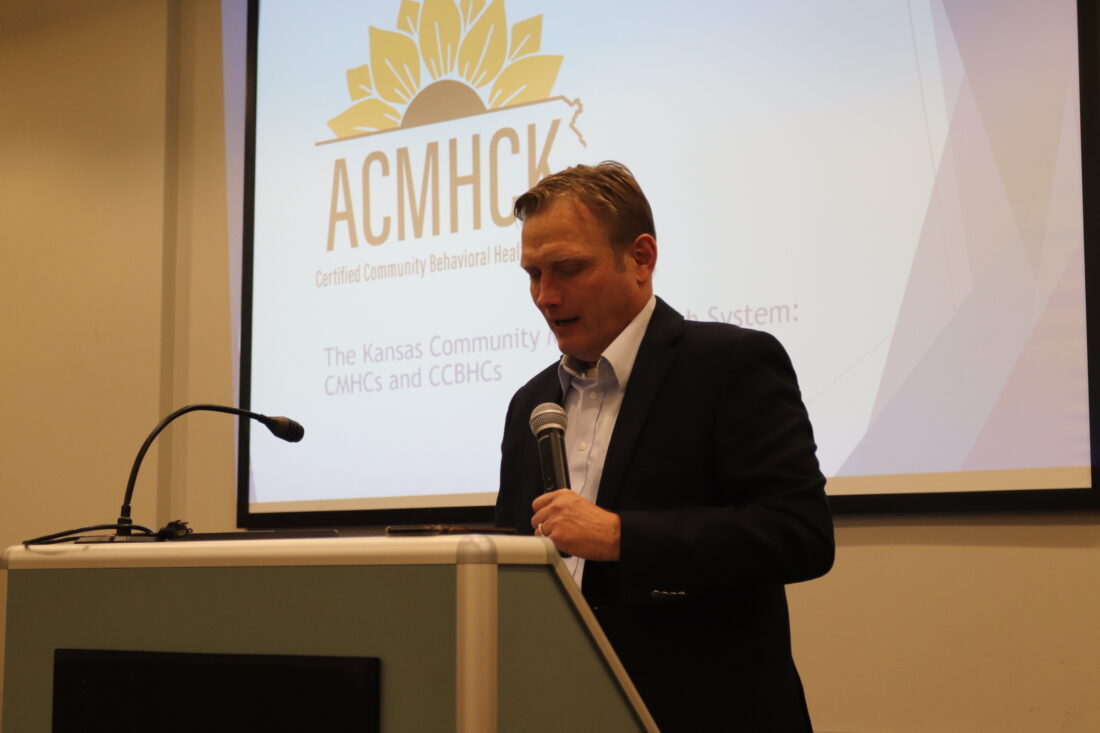
photo by: Josie Heimsoth/Journal-World
Kyle Kessler, executive director of the Association of Community Mental Health Centers of Kansas, is pictured on Monday, Nov. 3, 2025.




